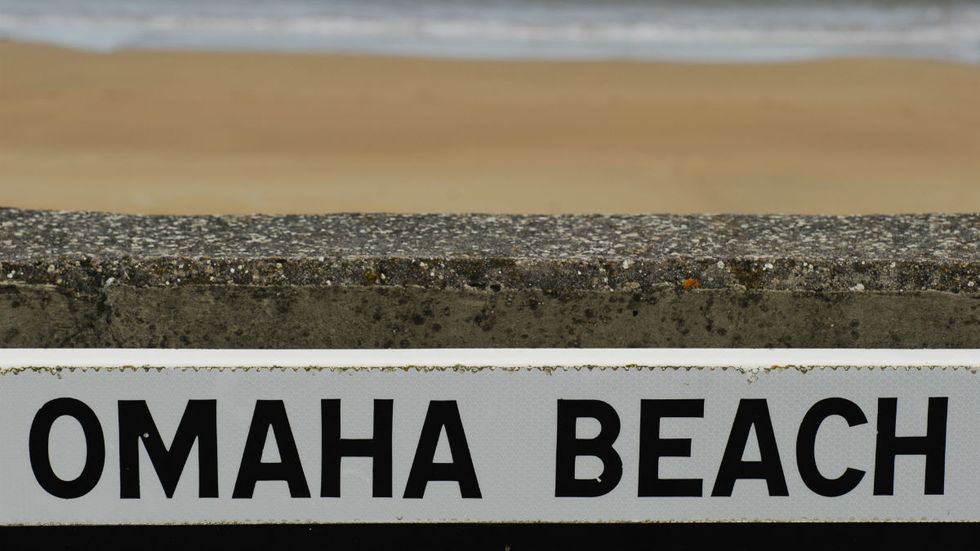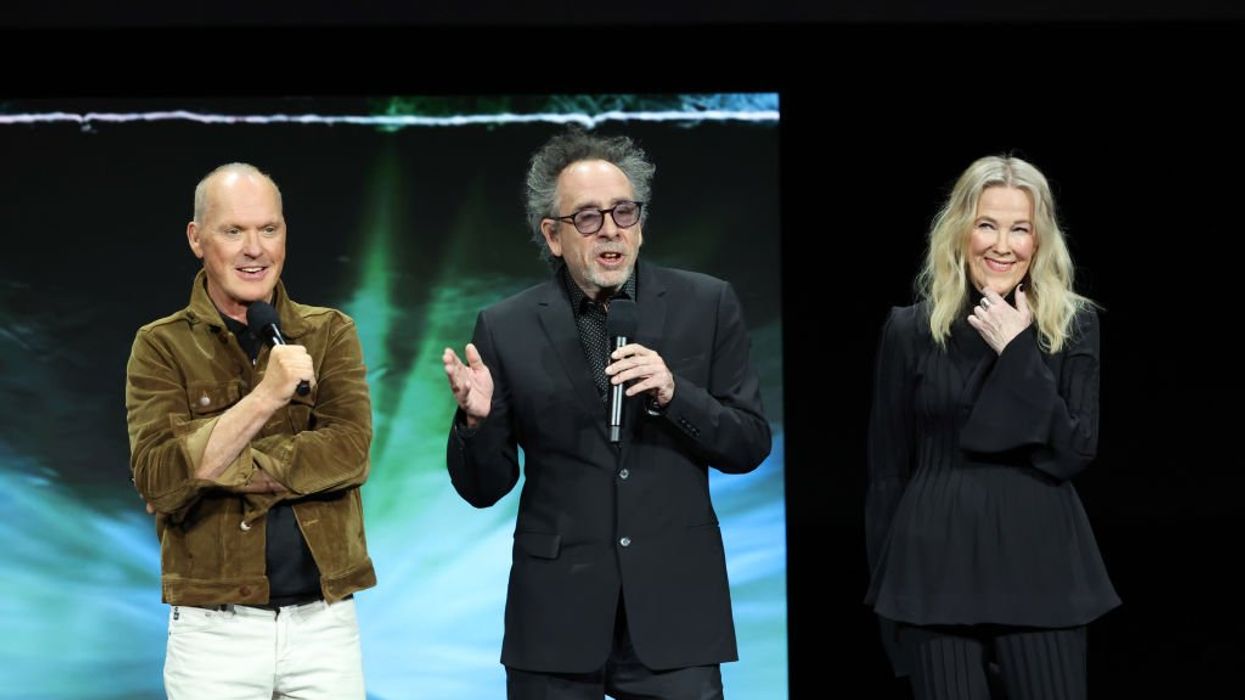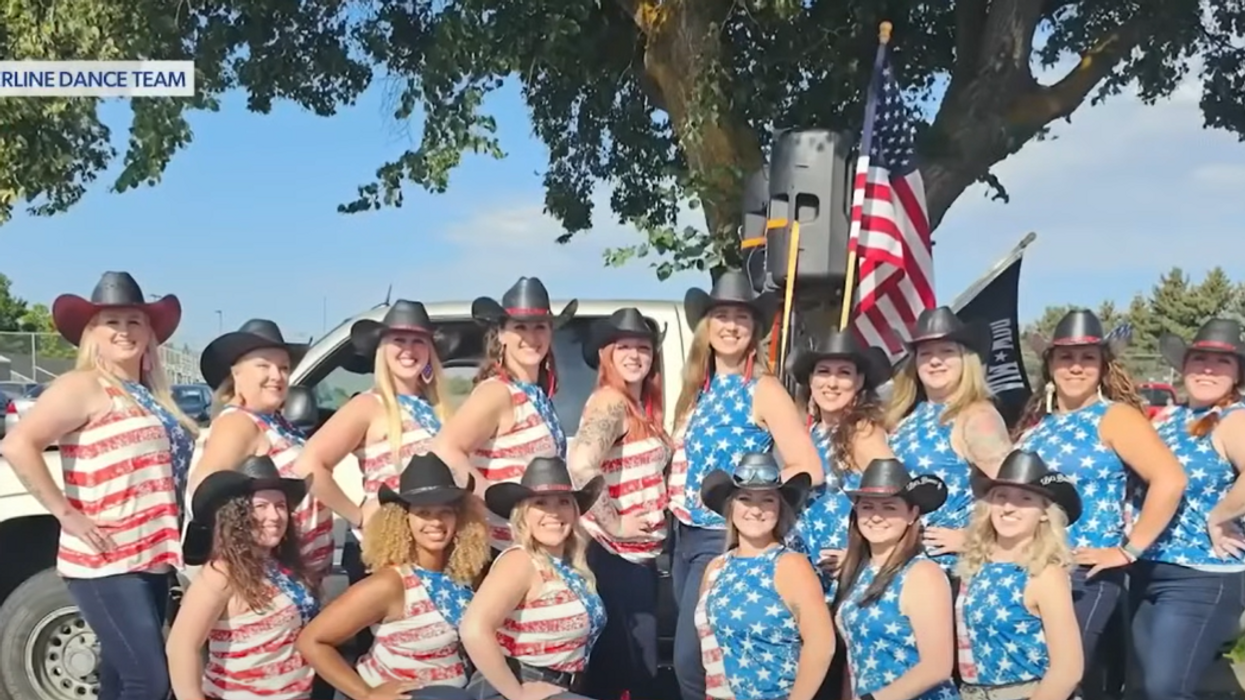
© 2024 Blaze Media LLC. All rights reserved.
Committing ourselves to the principle of ‘full victory’ on the 75th anniversary of D-Day
June 06, 2019
"Gentlemen, we are being killed on the beaches. Let us go inland and be killed.”
Those enduring words attributed to General Norman Cota on D-Day reflect the resolve of not just a military, but a nation unified behind that military with a sense of purpose. They were the words that rallied the men pinned down on Omaha Beach under the worst circumstances imaginable and helped turn the tide of the battle, permanently altering the trajectory of mankind for the next century. What almost resulted in utter catastrophe was transformed into the greatest victory, as General Cota told a group of the 5th Ranger Battalion, "We are counting on the Rangers to lead the way,” but then proceeded to lead the men himself, through a dangerous route off the beach.
When reflecting upon this momentous 75th anniversary of D-Day, a high-water mark in this nation’s history, it’s astounding to consider how successful this operation was given the lack of edge our military had over the enemy. We didn’t have precision-guided bombs and missiles, AC-130 gunships that can scan the caves and hilltops for enemy positions, or pilotless combat aircraft. In fact, the Germans were the ones with the fastest guns in the world, and they had them built into bunkers on the highlands and cliffs at Normandy, creating a kill zone where the 29th Infantry Division landed.
However, what they also lacked on June 6, 1944, was transgender sensitivity training, generals who were politicians and not warriors, a confused sense of morality in warfare, and a divided nation that couldn’t recognize its own clarity of mission, sense of purpose, or national character. They lacked a political and military leadership that would prosecute their best soldiers more rigorously than they pursued the enemy. What they were missing in edge over our enemies, they compensated for with united values, bravery, resolve, and determination.
The lack of technological superiority really showed itself on that fateful Tuesday morning in the English Channel. From intelligence and mechanical failures and an air bombing campaign that missed its mark to dismal weather and just plain bad luck, we paid a heavy price with nearly 2,500 American fatalities and thousands more wounded just in that one day, mainly at Omaha Beach. But thanks to meticulous planning, a clearly defined mission, an intrepid sense of morality, and a united resolve to achieve the mission at all costs, the beachheads were secured by the end of the day, paving the way for over 140,000 American, British, and Canadian troops to make it ashore. The young men who were seasick, weighed down with drenched gear and jammed guns, and many of them wounded and without living superior officers to guide them found a way to get across hundreds of yards of a killing zone to plant the seeds of freedom on the other side of those cliffs.
The great Atlantic wall that took Hitler several years to construct was broken in one day, leading to the freeing of Europe in just 10 months. By the night of June 6, despite the heavy price paid, the Allied Forces were on the European mainland and successfully quelled German counterattack to retake that ground.
To this day, families of WWII veterans can stand on the hallowed ground of Omaha Beach and solemnly reflect with pride on the enormous gains taken and preserved by their parents and grandparents in the fight to protect our national interests and those of all humanity.
It's a sad contrast to what we see today from our military and political leadership, who are often one and the same, when it comes to a sense of purpose, rules of engagement, and valuing the sacrifice of American troops in the field. While we commemorate what is often called “the longest day,” we continue to languish in “the longest war” in Afghanistan, devoid of any defined mission and national interest, while our soldiers die for nothing but political correctness.
Meanwhile, our own border is invaded with impunity by dangerous cartels, and our military is sent there as sitting ducks without the ability to go after the enemy. Could you imagine Generals Eisenhower, Patton, and Cota allowing our soldiers to be disarmed at our own border in the face of the cartels?
We don’t lack the intrepid fighting spirit of 1944. Our soldiers have displayed bravery in the hellholes of Iraq and Afghanistan similar to what some of their grandparents did at Omaha Beach. It’s that our political leaders are broken. They send troops on senseless missions while hamstringing them on missions that actually matter. In fact, if we actually had the political will to believe in America and our own national interests the way our political and military leaders did in WWII, the marriage of modern technology with today’s fighting spirit of our all-volunteer military would create a force that could not be rivaled.
Oliver Wendell Holmes, in his seminal 1884 Memorial Day speech, explained the significance of this day that “celebrates and solemnly reaffirms from year to year a national act of enthusiasm and faith.” This is vital because “to act with enthusiasm and faith is the condition of acting greatly,” and “to fight out a war, you must believe something and want something with all your might.”
In World War II, our soldiers, generals, and political leaders all knew what they believed in and believed in it with all their might. That belief was transfused into the fighting men on the beaches that fateful day and in those who parachuted behind enemy lines that fearful night. With such a sense of mission in mind, they all understood General Eisenhower’s one rule of engagement: “We will accept nothing less than full victory.”
Perhaps the best way to capture the lesson we should derive from D-Day is to take Calvin Coolidge’s Memorial Day admonishment to heart. On Memorial Day 1927, Coolidge declared, “Reverence for the dead should not be divorced from respect for the living.” Indeed, we honor their sacrifice by championing their legacy in the here and now.
If we hold those who have gone before in high estimation, it will reflected in our conduct toward those who are still with us. It would be idle to place a wreath on the grave of the dead and leave ungarlanded the brow of the living. Our devotion to the memory of those who have served their country in the past is but a symbol of our devotion to those who are serving their country at present.
The only thing worse than placing our soldiers in harm’s way is putting them there without a defined mission, a clear picture of victory, an understanding of what and why we are fighting, and rules of engagement that “accept nothing less than full victory.” We should celebrate the bravery and sacrifice of our grandparents in 1944 not just by saving their important memories and stories but by recommitting to supporting their grandchildren and great-grandchildren in arms with the same degree of moral clarity in battle as generals like Eisenhower, Patton, and Cota did on D-Day. After all, as long as we forge a clear path, “Rangers lead the way.”
#mc_embed_signup{background:#fff; clear:left; font:14px}
/* Add your own MailChimp form style overrides in your site stylesheet or in this style block.
We recommend moving this block and the preceding CSS link to the HEAD of your HTML file. */
Want to leave a tip?
We answer to you. Help keep our content free of advertisers and big tech censorship by leaving a tip today.
Want to join the conversation?
Already a subscriber?
Blaze Podcast Host
Daniel Horowitz is the host of “Conservative Review with Daniel Horowitz” and a senior editor for Blaze News.
RMConservative
more stories
Sign up for the Blaze newsletter
By signing up, you agree to our Privacy Policy and Terms of Use, and agree to receive content that may sometimes include advertisements. You may opt out at any time.
© 2024 Blaze Media LLC. All rights reserved.
Get the stories that matter most delivered directly to your inbox.
By signing up, you agree to our Privacy Policy and Terms of Use, and agree to receive content that may sometimes include advertisements. You may opt out at any time.



